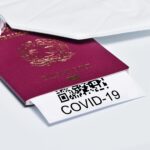Arriving in a new country is a monumental step, filled with both excitement and a multitude of tasks. For those who have just landed in Canada, a structured approach can transform a potentially overwhelming experience into a smooth and successful transition. This definitive guide serves as an essential checklist for newcomers, outlining the pivotal actions to take from the moment of arrival to becoming fully settled. Following this roadmap will help lay a strong foundation for your new life, ensuring you address critical areas such as official documentation, financial stability, healthcare, and community integration. This newcomers settle in Canada checklist is designed to empower you with the knowledge needed to navigate these early days with confidence.
Table of Contents
- Your First Crucial Days: Immediate Steps After Landing in Canada
- Mastering Your Finances: A Newcomer’s Indispensable Guide to Banking in Canada
- Securing Your Well-being: Navigating Canada’s Intricate Healthcare System
- Building Your New Life: Foundational Long-Term Settlement Essentials
- Integrating into Canadian Society: A Powerful Pathway to Community and Career
- Frequently Asked Questions
Your First Crucial Days: Immediate Steps After Landing in Canada
The first few days after arriving in Canada are arguably the most critical. The actions taken during this period set the stage for everything that follows. Upon landing at a Canadian port of entry, the first official interaction will be with an officer from the Canada Border Services Agency (CBSA). This is where your permanent resident status is officially confirmed, and your Confirmation of Permanent Residence (COPR) document is signed. It is imperative to ensure all information is correct and to have all your essential documents readily accessible, including your passport, COPR, and proof of funds. After clearing immigration, one of the most immediate priorities is to apply for a Social Insurance Number (SIN). The SIN is a nine-digit number necessary for working in Canada, opening bank accounts, and accessing government programs and benefits. Applications can be made at any Service Canada Centre, and in many cases, a SIN can be issued on the same day. Securing temporary accommodation in advance is also a wise strategy, whether it’s a short-term rental, an Airbnb, or staying with friends or family, as this provides a stable base from which to complete other essential tasks without the added stress of finding a place to live.
Mastering Your Finances: A Newcomer’s Indispensable Guide to Banking in Canada
Establishing a financial footprint is a cornerstone of settling in Canada. The Canadian banking system is robust and accessible, and opening a bank account should be high on any newcomer’s checklist. Most major Canadian banks offer specialized newcomer packages that often include no-fee banking for the first year, a credit card with a manageable limit to start building a credit history, and other valuable perks. Building a Canadian credit history from scratch is vital for future financial goals, such as securing a mortgage, car loan, or even some mobile phone plans. A credit card, used responsibly and paid on time, is one of the most effective tools for this. When choosing a bank, consider factors like the proximity of branches, the availability of services in your preferred language, and the specific features of their newcomer programs. It is also beneficial to apply for a credit card as soon as possible, even a secured one, to begin the process of establishing creditworthiness in Canada. This proactive approach to financial management will pay significant dividends in the long run.
Key Documents for Opening a Bank Account:
- Confirmation of Permanent Residence (COPR) or Permanent Resident Card: This is your primary proof of status in Canada.
- Passport: A valid passport from your country of origin is a standard identification requirement.
- Social Insurance Number (SIN): While not always mandatory to open a basic account, it is required for any account that pays interest.
- Proof of Address: This can sometimes be challenging for newcomers. A lease agreement or a utility bill can be used. Some banks are more flexible and may accept other forms of documentation initially.
Securing Your Well-being: Navigating Canada’s Intricate Healthcare System
Canada’s publicly funded healthcare system is a point of national pride, but accessing it requires specific steps. As a new permanent resident, applying for a provincial or territorial health card is a non-negotiable task. Each province has its own health insurance plan, and eligibility requirements and waiting periods can vary. For example, provinces like Ontario, British Columbia, and Quebec may have a waiting period of up to three months after you establish residency before you are covered. During this waiting period, it is absolutely essential to arrange for private health insurance to cover any medical emergencies. The cost of healthcare without coverage can be financially devastating. Information on how to apply for a health card is available on the respective provincial government’s health ministry website. The application process typically requires proof of identity, proof of residency, and your immigration documents. Understanding the scope of coverage is also important; while provincial plans cover most essential medical services, such as doctor visits and hospital stays, they generally do not cover prescription drugs, dental care, or vision care, for which many Canadians have supplementary private insurance, often through their employers.
Building Your New Life: Foundational Long-Term Settlement Essentials
Once the immediate priorities are handled, the focus shifts to more permanent arrangements that form the bedrock of your new life in Canada. Finding long-term housing is a significant milestone. The rental market can be competitive, especially in major cities, so it’s important to be prepared with documents such as proof of employment or income, references, and a credit report, if available. Another key step is obtaining a Canadian driver’s license. The process for this varies by province and depends on your country of origin. Some countries have reciprocal agreements with Canadian provinces, allowing for a simple exchange of licenses, while others may require you to pass written and road tests. A driver’s license is not only necessary for driving but also serves as a primary piece of government-issued photo ID. For newcomers with children, navigating the education system is paramount. Researching local schools, understanding the registration process, and gathering the required documents—such as proof of address, the child’s birth certificate, and immigration papers—should be done promptly to ensure a smooth transition for your children into their new academic environment. These foundational steps are crucial for establishing a sense of stability and permanence in Canada.
Integrating into Canadian Society: A Powerful Pathway to Community and Career
True settlement goes beyond official documents and housing; it involves weaving yourself into the social and professional fabric of Canada. This process of integration is multifaceted and deeply personal. Professionally, it may involve having foreign credentials assessed by designated organizations like World Education Services (WES) to understand their Canadian equivalency. This can be a vital step for professional licensing and job searching. Newcomers should actively seek out government-funded settlement services, which offer a wealth of resources, including free language classes (LINC/CLIC), employment workshops, and networking events. Building a professional network is crucial in the Canadian job market, where many opportunities are found through connections. On a personal level, connecting with your local community is equally important. This can be achieved by joining community centers, volunteering for a cause you care about, participating in local events, or connecting with cultural associations. These activities not only help in building a social circle and combating feelings of isolation but also deepen your understanding of Canadian culture and values. Embracing this final, ongoing step in the settlement journey is what transforms a new country into a true home, creating a powerful sense of belonging and purpose.
Frequently Asked Questions
What is a Social Insurance Number (SIN) and why is it important?
A Social Insurance Number (SIN) is a unique nine-digit number required to work in Canada or to have access to government programs and benefits. It is one of the first and most critical pieces of documentation a newcomer should obtain, as it’s essential for employment, banking, and filing taxes.
How do I build a credit history as a newcomer in Canada?
Building a credit history is vital for your financial future in Canada. A primary method is to open a bank account and apply for a credit card, even a secured one, as soon as you arrive. Using the card for small purchases and paying the balance in full and on time each month demonstrates financial responsibility to credit bureaus.
Do I need private health insurance when I arrive in Canada?
Yes, it is highly recommended. Many provinces have a waiting period of up to three months before new permanent residents are covered by the provincial public health plan. Private health insurance is essential during this gap to cover any unexpected medical costs, which can be extremely high.
What documents are typically needed to open a bank account in Canada?
To open a bank account, you will generally need your Confirmation of Permanent Residence (COPR) or PR Card, a valid passport, and your Social Insurance Number (SIN). You may also be asked for proof of address, such as a lease agreement, though some banks have flexible options for newcomers.
Where can newcomers find help with settling in Canada?
Newcomers can find a wealth of support from government-funded settlement service organizations. These agencies offer free resources such as language training (LINC/CLIC), employment workshops, help with credential assessment, and community connection programs designed to assist with integration.
Talk to us to find out more. ->
The content above is not intended to provide legal advice or opinions of any kind and may not be used for professional or commercial purposes.






